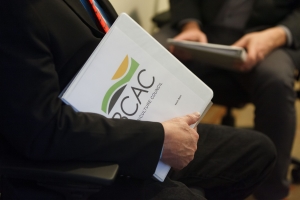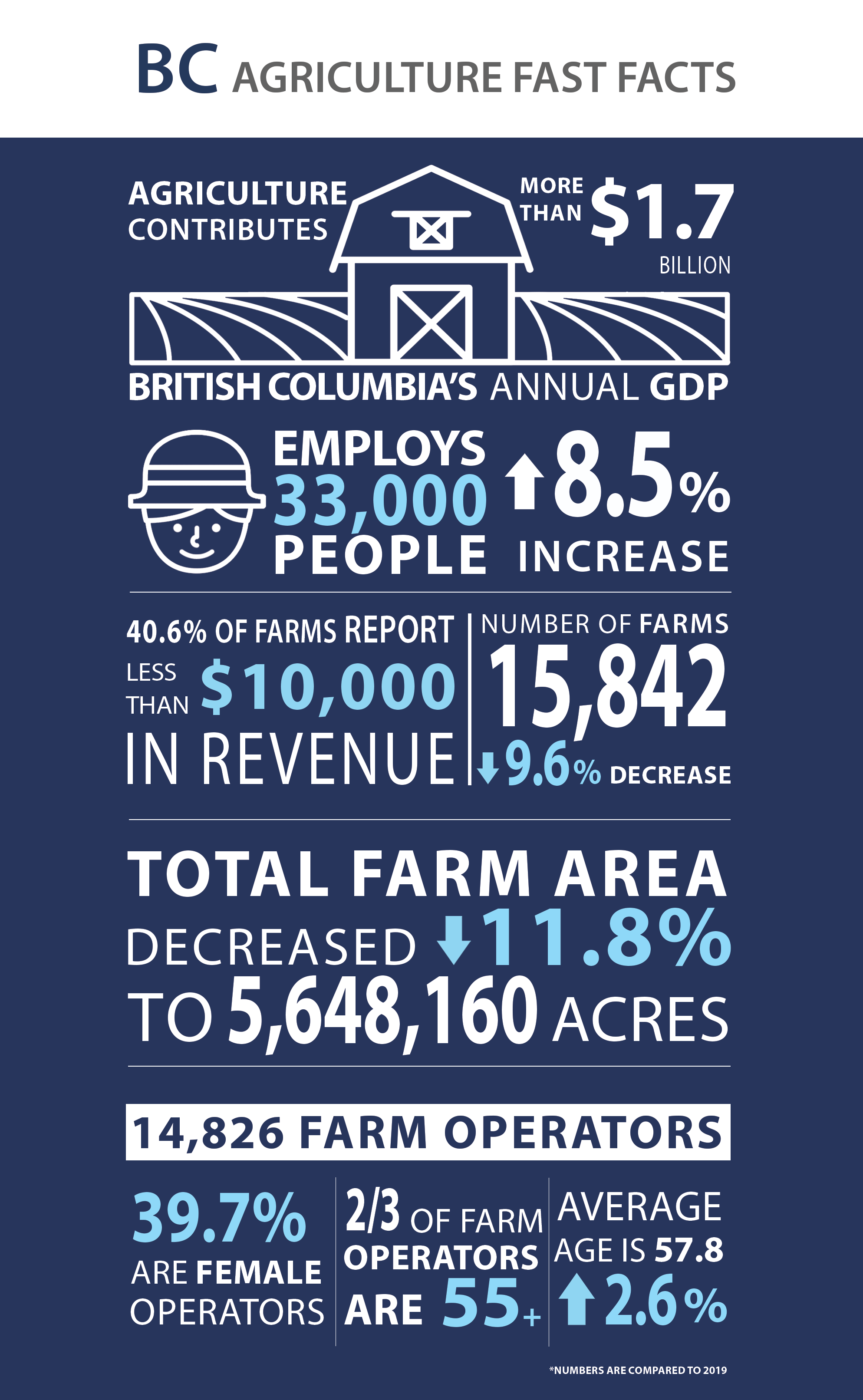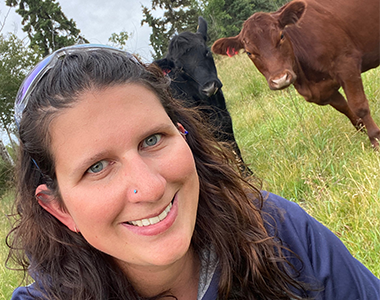BC Agriculture Council (BCAC) is the lead industry advocate for key sector-wide priorities in British Columbia.
BC Agriculture Council is the lead industry advocate for key sector-wide priorities in British Columbia.
We are committed to advancing the interests of B.C.’s agricultural sector by focusing on critical issues that impact farmers, ranchers, and the broader agricultural community. Our advocacy efforts are guided by the priorities identified by our members, addressing key challenges and opportunities across the sector.
KEY SECTOR PRIORITIES & POSITION PAPERS
Our key sector priorities are determined through frequent consultation with BCAC’s member associations.
Water is the cornerstone of agriculture and the foundation of a secure food system. B.C. farmers and ranchers understand the vital importance of protecting this precious resource and ensuring a safe, reliable water source for food and agricultural production. Our advocacy efforts aim to address water-related challenges through:
- Advancing a Watershed Security Strategy to safeguard and manage water resources effectively.
- Improving the groundwater licensing process to create fair and transparent policies.
- Establishing agricultural water reserves to prioritize water for food production.
- Securing investments in water storage infrastructure to adapt to climate variability.
- Ensuring safe and reliable access to water for agricultural purposes.
- Aligning water use priorities to place food production on par with drinking water.
Dowload BCAC’s position paper on water management and security.
Access to labour is essential for food security and the success of the Canadian agriculture sector. BCAC supports the use of foreign workers only when there are no Canadians willing or available to do the work. It is vital that all workers operate in a safe and rewarding environment where their rights are respected and promoted.
To address ongoing labour challenges, our advocacy efforts focus on:
- Increasing flexibility for Temporary Foreign Workers (TFWs) to move between farms with employer consent.
- Launching a domestic worker attraction project to build a stronger local workforce.
- Developing human resource supports for employers through partnerships with organizations like WALI and Canadian Agricultural Human Resource Council (CHRC).
- Advocating for MSP coverage for TFWs to ensure accessible healthcare.
- Securing increased support for worker housing to improve living conditions.
Download BCAC’s position paper on access to labour.
Ensuring farmland sustainability is crucial. Agriculture is highly vulnerable to changes in climate conditions, and even small shifts can have significant consequences for food production, farmers’ livelihoods, and the future of the agri-food sector in B.C. BCAC is committed to supporting farmers and ranchers in building resilience and preparing for the challenges posed by climate change and emergencies.
Our advocacy efforts focus on:
- Improving Disaster Financial Assistance (DFA) programs to better support farmers during crises.
- Securing funding for food security planning and preparedness initiatives.
- Streamlining processes for re-entry permits and ensuring agricultural representation in Emergency Operations Centres (EOCs).
- Providing training for agricultural coordinators and producers to enhance emergency response capabilities.
Download BCAC’s position paper on environment and climate change.
The cost of production remains a critical focus for ensuring the financial sustainability of B.C.’s farms and ranches. Rising input costs, labour challenges, and policy-driven expenses are placing increased pressure on producers. Our advocacy emphasizes targeted solutions to address these challenges, including:
- Establishing a Joint Industry–Government Policy Working Group to tackle rising costs collaboratively.
- Exploring solutions for minimum wage subsidies to support farm operations.
- Advocating for adjustments to the carbon tax to mitigate its impact on producers.
- Supporting a tax exemption on insurance premiums to reduce overhead costs.
- Enhancing the Advanced Payment Program (APP) and a review of business risk management (BRM) programs to improve accessibility, reduce duplication, and expand terms.
Download BCAC’s position paper on farm business.
OTHER PRIORITIES & POSITION PAPERS
Protecting farmland is essential for the success and sustainability of B.C.’s agriculture sector. With only 5% of the province’s land base dedicated to agriculture through the Agricultural Land Reserve (ALR), it is critical to preserve this resource for food production. Encroaching urban development, rising land costs, and increasing regulatory pressures threaten the viability of farmland, putting food security and the future of farming at risk.
BCAC’s advocacy efforts focus on:
- Safeguarding the ALR to ensure land is prioritized for agricultural production.
- Promoting a long-term vision for the Agricultural Land Commission (ALC) in collaboration with farmers and ranchers.
- Supporting programs and policies that enhance farmland productivity and viability.
- Ensuring consistent enforcement of ALR regulations to prevent non-conforming land use.
- Advocating for access to water within the ALR to maintain its productivity and value.
Download BCAC’s position paper on land use.
When it comes to food and how it is produced, misinformation abounds. The share of voice and influence with certain consumer segments have driven which food news is shared broadly and embraced by the broader public.
Download BCAC’s position paper on agriculture education and awareness.
We believe the best solutions for agriculture sector challenges should come from the agriculture sector.
The economic viability of farm production is in jeopardy as a result of the financial stress caused by increased input costs and a continually growing tax burden. According to the Farm Input Price Index maintained by Statistics Canada, British Columbia is now the second least profitable province in which to farm.
We are pleased to share several specific ways B.C. farmers and ranchers feel our province is uniquely positioned to provide solutions in food security.
The following B.C. agricultural sector priorities were identified in consultation with BC Agriculture Council’s 29 member associations.
View BCAC’s sector priorities for the 2024 Provincial Election.
BCAC COMMITTEES
Agriculture on the Agenda
BC Agriculture Council uses committees to develop and advocate on our member’s interests that are critical to agriculture in British Columbia. Our committees and working group members are appointed based on their expertise and interests. Committees and working groups meet a number of times throughout each year and whenever an issue requires.
Growing the community’s understanding of agriculture to secure producer’s social licence to operate while reducing the risk of farmers being bullied or harassed is a priority. Addressing these challenges requires coordinated agriculture industry input.
The Agriculture Education and Awareness Advisory Committee will offer input directed to relevant stakeholders. The BCAC Board has directed the Agriculture Education and Awareness Advisory Committee to engage in the following:
- Provide feedback to BCAC’s annual workplan as it relates to its work communicating to the public about agriculture.
- Provide feedback to BCAC’s efforts and strategies as it relates to general sector public relations as well as the proactive/reactive responses to activism.
- Advise the organization on highly sensitive issues when they occur if requested.
- Assist with the organization of a bi-annual meeting of food value chain stakeholders.
To support the long-term sustainability of agriculture in this province, it is critical to understand the perspective from the next generation of farmers and ranchers. The BC Young Farmers Committee’s primary purpose is to provide their input to the Council to ensure the organization’s advocacy efforts are inclusive.
The committee will work to provide a forum where young leaders can discuss issues related to agriculture, provide input in BCAC policy-building initiatives, and build connections between BCAC and the next generation of farmers in B.C. With support from BCAC, the committee will play a key role in the coordination of delivering educational opportunities for young farmers in B.C.
The BCAC Board supports the BCYF Committee to engage in the following; in collaboration with BCAC, the BCYF Committee will:
- Appoint a representative for the BCAC Board and standing committees.
- Attend advocacy related events on behalf of BCAC as required.
- Nominate committee representatives for provincial agricultural bodies.
- Participate in provincial conferences as required.
- Provide input into the development of BCAC policy papers where requested.
- Act as the primary contact point for young farmer issues for BCAC.
- In collaboration with BCAC, coordinate and deliver educational opportunities to producers.
- Participate in media engagements with coordination and support from BCAC.
The Emergency Management and Climate Readiness Committee will facilitate industry input directed to relevant stakeholders. The BCAC Board has directed the Emergency Management and Climate Readiness Committee to engage in the following:
- Seek ways to improve the implementation of, or amend, the Code of Practice for Agricultural Environmental Management.
- Consider legislative and regulatory changes that exempt activities essential to farm operations from carbon pricing mechanisms.
- Provide recommendations to the BCAC Board of Directors on grant or rebate programs that could reduce the impact of carbon pricing on the agriculture sector as well as enabling information and technology transfer related to environmental sustainability.
- Develop an inventory of climate mitigation infrastructure improvements requiring government investment.
- Identify climate mitigation and adaptation needs in B.C.’s agriculture sector.
- Review the effectiveness of existing climate mitigation and adaptation programs relevant to B.C.’s agriculture sector.
- Exchange relevant information and best practices from their respective sectors.
The BCAC/WALI Labour Committee will facilitate and coordinate industry input on farm labour issues to BCAC/WALI Staff. The BCAC Board has directed the Committee to engage in the following:
- Provide input to government on new regulations being developed.
- Provide input on the support services that WALI provides to employers accessing temporary foreign workers.
- Monitor impacts of government labour regulations on BC farms and ranches.
- Communicate with their respective commodity associations to ensure that groups are kept current on labour related issues.
- Provide recommendations to the BCAC/WALI board for specific issues that need to be raised with government.
- Provide representation to national labour committees or working groups (e.g. CFA, FVGC, CAHRC), and to the Regional and National meetings of the Temporary Foreign Worker Programs.
The Land Use Committee will facilitate industry input directed to relevant stakeholders. The BCAC Board has directed the Land Use Committee to engage in the following:
- Seek ways to improve the implementation of, or amend, the Agricultural Land Commission Act and related Regulations, as well as providing recommendations to the BCAC Board of Directors for specific issues that need to be raised with the ALC and/or relevant Ministers.
- Consider legislative and regulatory changes to farm classification and taxation that ensure agricultural land is primarily used for agricultural production.
- Develop recommendations for programs or initiatives that address land improvement costs.
- Provide feedback on any government policies that could affect the integrity of the ALR.
- Review provincial, regional, and municipal land use regulations as needed to identify opportunities to enhance protections for farmland.
- Exchange relevant information and best practices from their respective sectors.
The Water Committee will facilitate industry input directed to relevant stakeholders. The BCAC Board has directed the Water Committee to engage in the following:
- Seek ways to improve implementation of, or amend, the Water Sustainability Act and Regulations (groundwater licensing, priority water use for livestock and food production equipment, dugout licensing, etc.) and provide recommendations to the BCAC Board for specific issues that need to be raised with the respective Ministers.
- Provide input into development of livestock watering regulations.
- Pursue development of agricultural water reserves as per details on water reservation in the Water Sustainability Act.
- Promote group Environmental Farm Plans in water supply priority areas.
- Review existing Water Use Plans and determine if they result in detrimental impacts to agriculture.
- Ensure that agriculture needs are considered, and the industry is involved as a stakeholder in the development of new Water Use Plans.
- Pursue government funding for multi-year, regional water projects including enhanced water storage to support agricultural water priorities.
- Encourage linking access to water with access to crown land, possibly proportional to forage production capacity (AUM’s).
- Resolve issues around groundwater licensing and surface water rights.
- Promote updating streamflow assessments for decision support.
OTHER COMMITTEES
The Provincial Risk Management Advisory Committee is a joint committee between BCAC and the BC Ministry of Agriculture that advises and provides direction to the BC Ministry of Agriculture (AGRI) on the safety net program policy. The BCAC recommends the representation to the National Advisory Committees (Safety Nets and the Canadian Agricultural Income Stabilization Program) from the Provincial Risk Management Advisory Committee, the appointments of which require approval by the federal Minister of Agriculture.
The Food Security Emergency Planning and Preparedness (FSPP) Oversight Committee is a joint initiative between BCAC and its member organizations. It provides strategic guidance to enhancing the sector’s ability to prepare for, respond to, and recover from emergencies affecting food security, farmer safety, and business continuity.



















